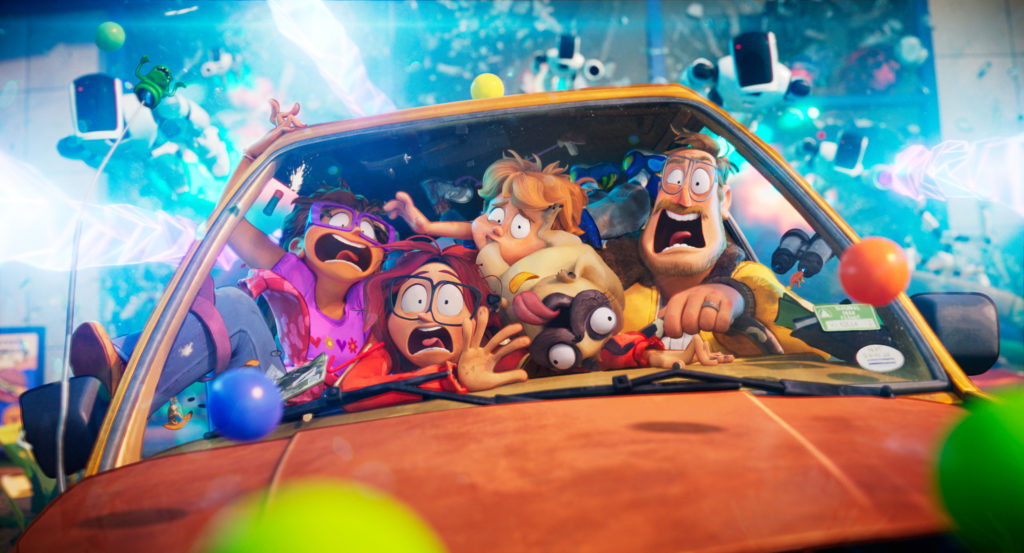
Netflix’s recent hit The Mitchells vs. The Machines tells the story of Katie and her slightly dysfunctional family on a farewell road trip as she leaves for college. There’s some family drama going on between Katie and her dad, but nothing that can’t be solved with the help of a machine apocalypse.
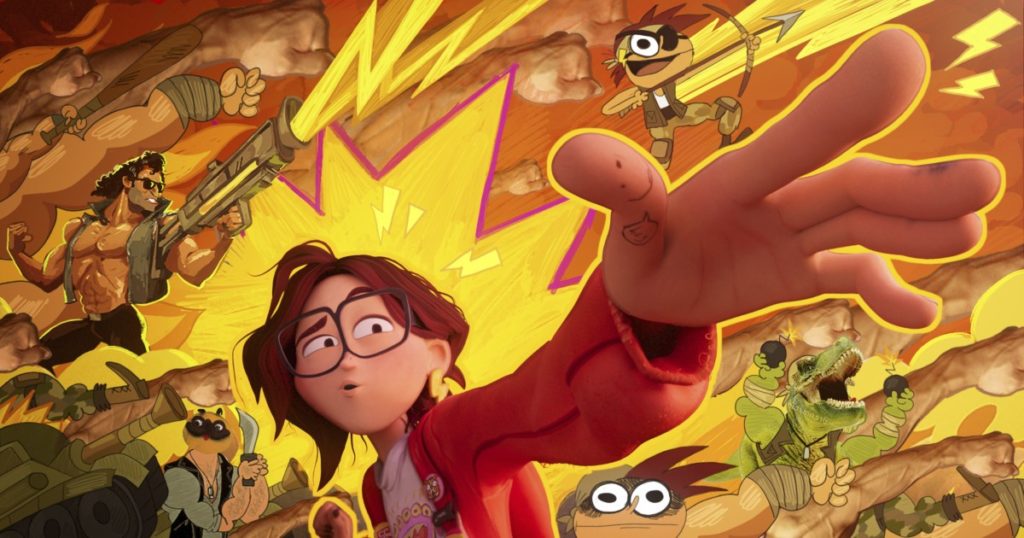
Katie is a classic Gen-Z kid: she’s attached to her phone all the time, even telling her dad at one point that seeing the world through a screen is “how I experience things.” She watches videos that look similar to TikToks and expresses her creativity through videos uploaded to her channel on YouTube. She wants to pursue film as a career, a goal that’s affirmed once she’s accepted into the college of her dreams. She’s excited to get away from home where she has no friends because of her quirky personality and because her peers simply don’t understand her interests (or her sexuality, as it’s implied.) In contrast, the people she’s met from college online already love her for who she is and share her interests.
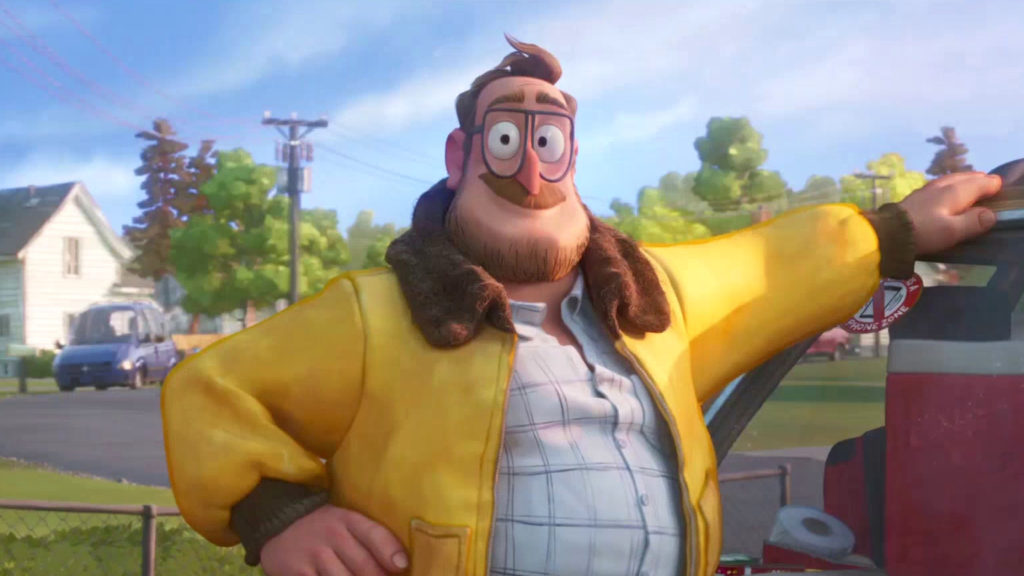
Meanwhile, Rick is like a lot of real life dads: he likes to fix things, he likes nature, he’s practical about everything in life and thinks his kids should be, too. The problem with that thinking is most kids are not carbon copies of their parents. They’re going to be different, which Rick has trouble understanding. So, we reach the main conflict of this movie (beyond the robot apocalypse): the universal struggle between the older, practical generation and the younger, creative generation. And seemingly worsening that divide is modern-day technology, the Internet, and social media.
Katie, like so many people who have dreams of going into the arts, has a parent who doesn’t believe she will succeed. Rick tells her, “Do you really think you can make a living with this stuff?” and later, “Failure hurts, kid. I want you to have a backup plan.” Of course, this is the eternal anxiety that plagues any person pursuing creative endeavors as a career. But Katie never gives into fear. Katie is unapologetically confident in herself and her dreams for her future. It’s refreshing to see a character like Katie never doubt herself. I was worried the premise of this film might center on Katie debating her goal to pursue film, but the real conflict follows Katie and her dad reconciling their differences.
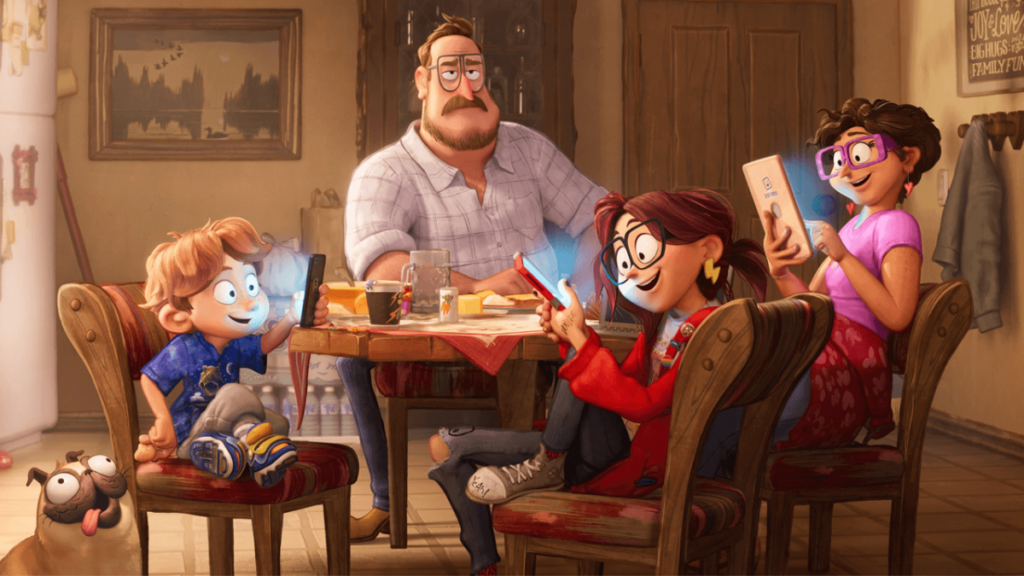
The main thing that stands between them is technology. Katie can’t part with it but that’s all her dad wants her to do. Screens constantly separate them. When Katie shows her family a video she made the night before leaving for college, all her father can see is a barrier. He doesn’t comprehend that this is how Katie is expressing her love for her family. He doesn’t see the effort she put into it. And Katie doesn’t understand her father’s dislike of technology and art or his love of nature. The two are polar opposites, but as the movie goes on, Katie’s mom points out that the two are very alike. They’re both stubborn, quirky but self-confident, and Rick even loved a form of art once too: he built a cabin for himself to live in, but the rest of his dream didn’t work out. Katie’s mom says he was probably afraid the same thing would happen to Katie.
After hearing all of this, Katie becomes more understanding of Rick. She can respect where he’s coming from. Over the course of the film, Rick understands Katie’s interests more, too. When she uses art to camouflage their car from robots, he notes, “I didn’t know art could be useful.”
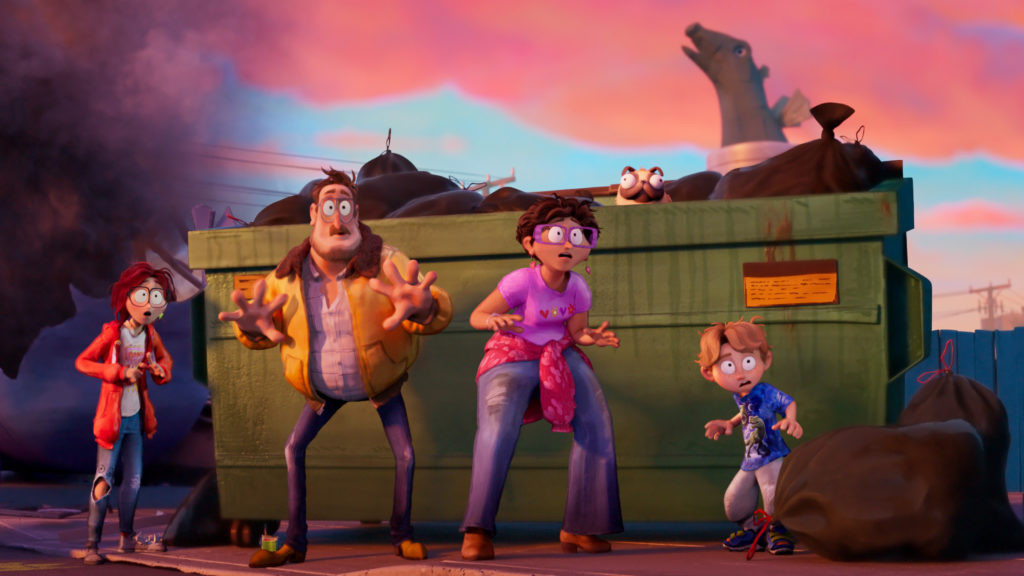
After Rick is captured, he sees one of Katie’s videos for the first time: Dog Cop. Dog Cop is a surrogate for Katie — in the video he’s leaving for California for school. The character Serge is a substitute for Rick. Serge doesn’t believe in Dog Cop and tells him, “Failure hurts, kid!” — the exact same line Rick told Katie earlier. But Dog Cop, like Katie, has decided to leave, and he/she still wants Serge/Rick to support their decision: “Now that I’m leaving, I need some backup. And when I look for you, you’re not there.” This is a real wake-up call for Rick. He realizes he’s been the villain in Katie’s story. He’s been holding her back by projecting his own fear of failure onto her. But Katie is going to leave anyway, so he needs to support her decision so they can maintain a good relationship.
Seeing this video and the way it cheers up Mark allows Rick to step into Katie’s shoes. He learns to understand Katie’s love of the Internet and form his own admiration of it, too. The movie makes technology and the Internet’s role more ambivalent now — it can serve as a divide, but it can also bring people together and make people happy. Rick says to Mark, “If what you built helps my daughter do that, it might not be all bad.”
And then the pair save the world by leaning into each other’s interests. Rick finds Katie’s YouTube channel to play her Dog Cop video to stop the robots. Katie uses Rick’s car to perform the “Rick Mitchell Special” in order to evade a wave of robots. And then Katie gives a wonderful little speech to Pal about family and relationships, one that I think any family can relate to: “Families can be hard but they’re so worth fighting for. They might be one of the only things that are.”
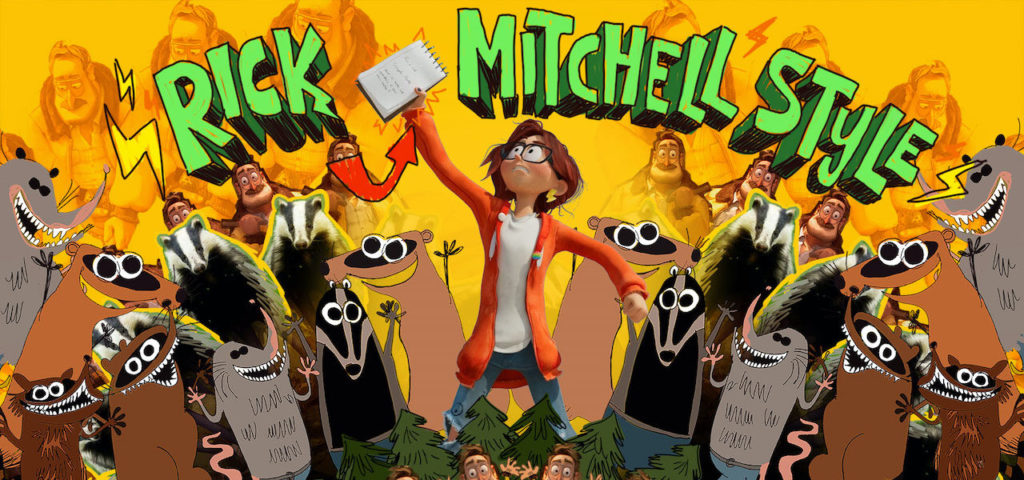
Once the machine apocalypse has been stopped by the Mitchells, Katie heads off to college. She and her dad reconcile, with Rick even subscribing to Katie’s YouTube channel. And in a final scene over video chat, Katie is confirmed queer when her mother asks if she and Jade are “official.”
As for racial diversity, the film is fairly diverse. Although the film centers a mainly white family, there are many other POC characters. The Posey neighbors are POC (and the parents are voiced by the amazing Chrissy Teigen and John Legend). One of Katie’s friends from college (and possible girlfriend), Jade, is black. And the creator of Pal, Mark Bowman, is also black.
The Mitchells vs the Machines is a family film about young people who feel different, their parents who are trying to understand them, and technology. It tackles all of these complex themes with great humor, zany but striking animation, and a sprinkle of anti-capitalism — nothing I wouldn’t expect from fantastic producers, Phil Lord and Chris Miller, who have been behind other animated gems like The Lego Movie and Into the Spiderverse. You can watch The Mitchells vs the Machines now on Netflix.
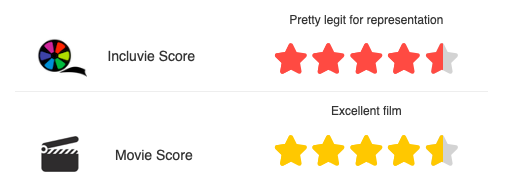
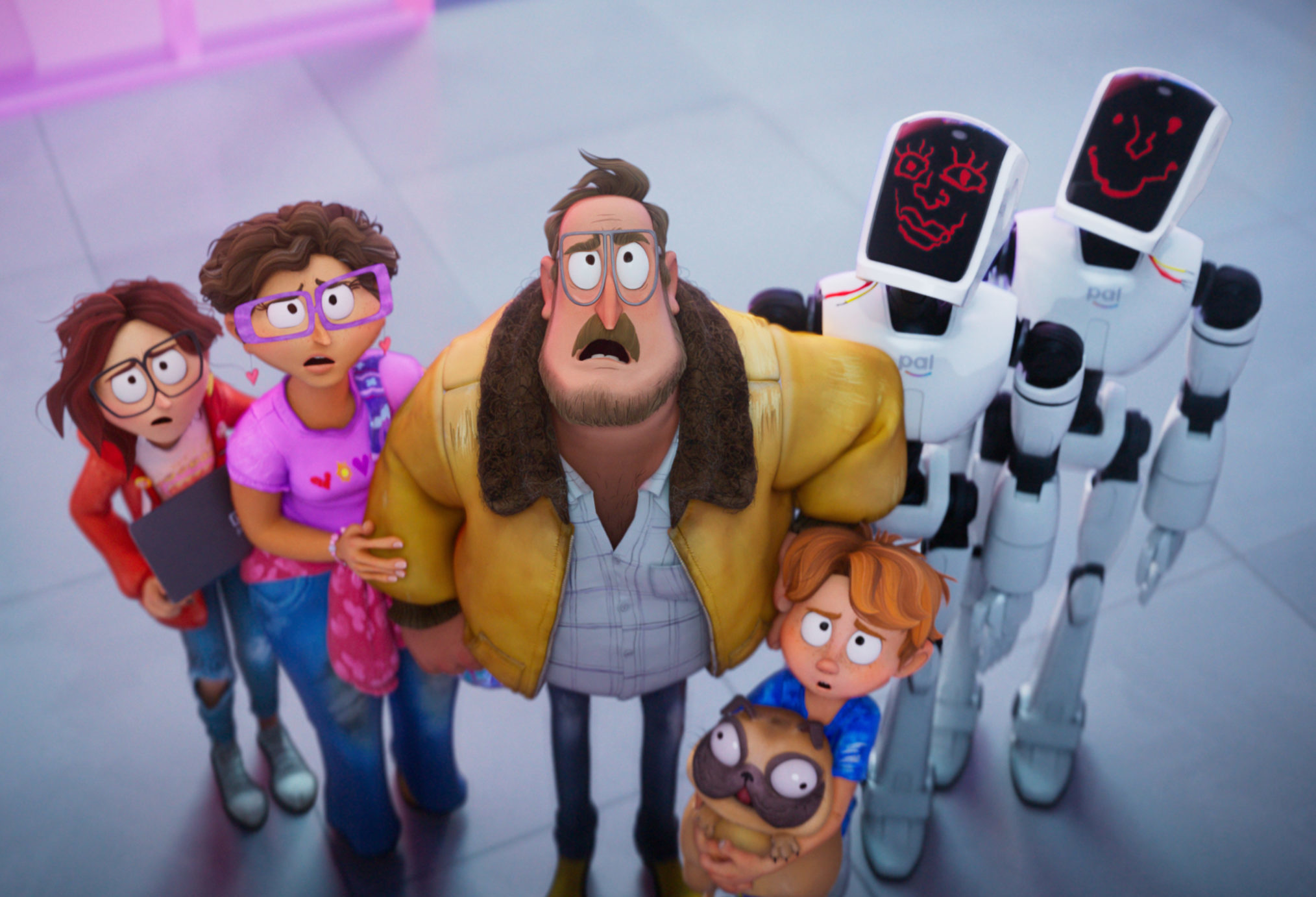
Comments